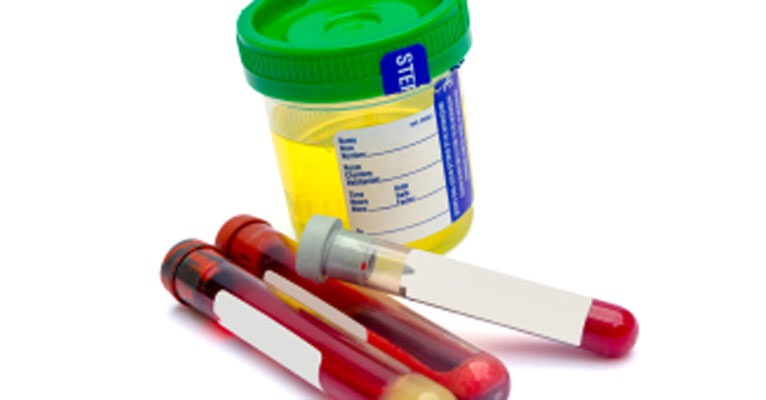
In the modern world of healthcare, pathology tests play a crucial role in diagnosing diseases, monitoring health conditions, and guiding medical treatments. With technological advancements, various pathology tests have been developed to detect ailments with precision and efficiency. Whether it’s for routine check-ups or specific disease detection, choosing the right pathology tests is vital for maintaining overall health.
Importance of Pathology Tests
Pathology tests are essential for identifying diseases at an early stage, enabling timely interventions and treatment plans. These tests help doctors make informed decisions and ensure that patients receive the best possible care. The results of pathology tests not only confirm a diagnosis but also assist in tracking the progress of treatment and assessing overall health.
There are numerous pathology tests available, but some are more critical for accurate diagnosis and health monitoring. Below are some of the best pathology tests that everyone should be aware of:
1. Complete Blood Count (CBC)
One of the most common and essential tests, the Complete Blood Count (CBC) measures different components of the blood, including red blood cells (RBCs), white blood cells (WBCs), hemoglobin, hematocrit, and platelets. It is useful in detecting conditions such as anemia, infections, and even blood cancers.
2. Blood Sugar Test (Fasting and Postprandial)
Blood sugar tests measure glucose levels in the blood, helping in the diagnosis and management of diabetes. A fasting blood sugar test is taken after an overnight fast, while a postprandial test is done after a meal. These tests are crucial for monitoring diabetes and preventing complications.
3. Lipid Profile
A lipid profile test assesses cholesterol levels, including LDL (bad cholesterol), HDL (good cholesterol), triglycerides, and total cholesterol. It is an essential test for evaluating heart health and determining the risk of cardiovascular diseases.
4. Liver Function Tests (LFT)
Liver Function Tests help assess the overall health of the liver by measuring enzymes, proteins, and bilirubin levels. Elevated liver enzymes can indicate liver diseases such as hepatitis, fatty liver disease, or cirrhosis.
5. Kidney Function Tests (KFT)
These tests evaluate kidney performance by measuring creatinine, blood urea nitrogen (BUN), and electrolyte levels. Proper kidney function is crucial for filtering waste and maintaining a balance of fluids in the body.
6. Thyroid Function Tests
The thyroid gland regulates metabolism, and its dysfunction can lead to conditions such as hypothyroidism or hyperthyroidism. Thyroid function tests measure levels of Thyroid Stimulating Hormone (TSH), T3, and T4 to assess thyroid health.
7. Hemoglobin A1c (HbA1c) Test
This test provides an average blood sugar level over the past three months, making it a critical test for diabetes management. Unlike daily glucose tests, the HbA1c test gives a long-term picture of blood sugar control.
8. Urinalysis
Urinalysis helps detect urinary tract infections (UTIs), kidney disorders, and diabetes-related complications. It analyzes the physical, chemical, and microscopic properties of urine to identify any abnormalities.
9. C-Reactive Protein (CRP) Test
CRP is a marker of inflammation in the body. High CRP levels may indicate infections, chronic diseases, or even heart conditions. It is often used to assess inflammatory disorders such as arthritis and autoimmune diseases.
10. Prostate-Specific Antigen (PSA) Test
The PSA test is used to screen for prostate cancer in men. Elevated PSA levels can indicate prostate conditions, including benign enlargement or malignancy.
11. Pap Smear Test
A Pap smear test is a crucial screening tool for cervical cancer in women. It helps detect abnormal cells in the cervix, allowing for early intervention and treatment.
12. Vitamin D and B12 Tests
Vitamin deficiencies can lead to serious health issues. The Vitamin D test is essential for bone health, while the Vitamin B12 test assesses nerve function and red blood cell production.
13. Electrolyte Panel
This test measures essential minerals like sodium, potassium, chloride, and bicarbonate, which help maintain fluid balance, nerve function, and muscle activity in the body.
14. Cancer Marker Tests
Certain blood tests detect tumor markers, which are proteins produced by cancerous cells. Examples include the CA-125 test for ovarian cancer, AFP test for liver cancer, and CEA test for colorectal cancer.
15. Allergy Testing
Allergy tests help identify allergens responsible for allergic reactions, allowing individuals to avoid triggers and manage symptoms effectively.
Choosing the Right Pathology Test
Selecting the appropriate pathology test depends on symptoms, risk factors, and overall health conditions. Regular screening tests can aid in early disease detection and improve treatment outcomes.
Conclusion
Pathology tests are indispensable tools in medical diagnostics and health monitoring. By undergoing regular health check-ups and pathology tests, individuals can take proactive steps toward a healthier life. Always consult with a healthcare professional to determine the best tests suited for your needs and ensure timely interventions if required.










